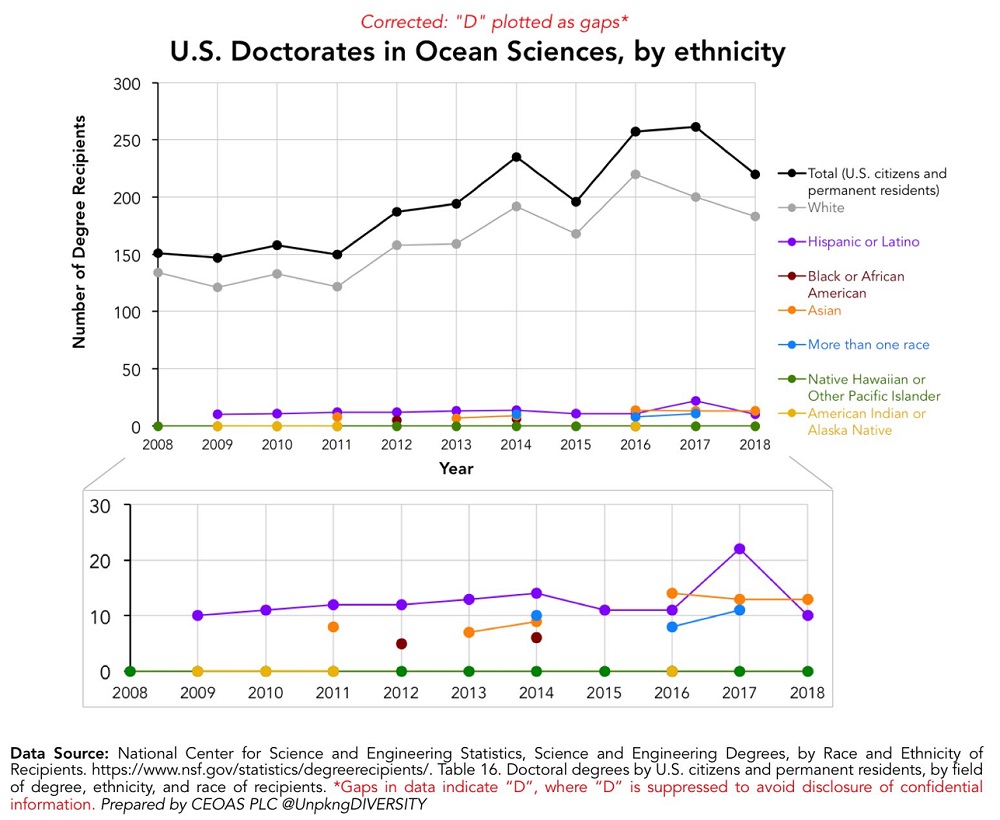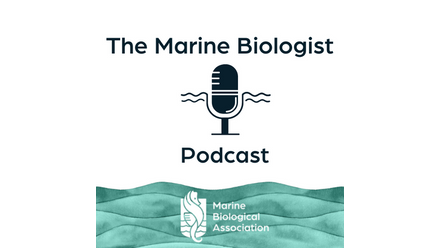Diversity, equality and inclusion in marine science
Many countries are facing uncomfortable truths about racial inequality and injustice due to high profile incidents in the US and elsewhere. Such incidents have highlighted long-standing prejudice and wider discrimination, rooted in societal and systematic inequalities, that many under-represented minorities have spoken of for years. A greater focus on news and social media during the COVID-19 pandemic has forced many of us in science to listen to this voice and to reflect on our own biases. The lack of diversity and inclusion within marine science has never been clearer.
Why is there a lack of diversity and inclusion in marine science?
The current diversity of individuals in marine science is not representative of the diversity of perspectives and experiences around the globe. In many cases, under-represented minorities are openly told that the natural world is ‘not for them’, whilst experiencing microaggressions1 and overt discrimination which deter them from marine science. However, other barriers exist that deliver the same message, and these may not be obvious to individuals who don’t experience them. Educational barriers exist on a global scale, where under-represented minorities do not have the same access to quality education or funding to support individuals from low-income backgrounds. Anecdotal evidence from these groups is that the influence of one or two teacher allies at school has encouraged them to pursue careers in marine science, after being told that they were ‘not smart enough’ to pursue scientific careers. This makes a clear case for mentorship in education and academia.
Even when individuals are able to penetrate the field at undergraduate level, it can be difficult to remain in marine science. Gaining experience in the field or laboratory is essential for accessing graduate programmes or wider job opportunities and so students often seek placements outside their university programmes. However, as these are often voluntary, financial barriers disproportionately exclude minorities, parents, and other groups that cannot afford to work unpaid. For PhDs in the UK, this problem is systemic, where the lack of recruitment for minorities is further exacerbated by narrow selection criteria based on biased views of excellence which again often relate to financial privilege.
Variables which select against minorities such as these are widespread within academia, but it can be difficult to locate quantitative research that sets out the discrimination that minorities experience, allowing the problem to persist further. A clear quantitative example of the lack of diversity, however, is shown by the small proportion of doctoral students studying in ocean science who belong to these minorities in the US (Fig 1). In the UK, data shows a similar story: since 2016, only 245 out of 19,968 total PhD studentships were awarded to Black or Black mixed students.

Figure 1. Number of degree recipients for ocean science in the United States (U.S.) as identified by ethnicity. Source: T.B. Truong of Unpacking Diversity, CEOAS PLC at Oregon State University, 2020.
The lack of representation and inclusion does not stop at race. Gender, sexual minorities, disabled, and neurodivergent individuals, too, experience discrimination in the workplace which, in combination with racial biases is exacerbated further. In combination, these have recently been highlighted as hiring biases for post-doctoral research positions in science more generally but are likely to occur within marine science too, resulting in a field that lacks role models for minority groups. If individuals are unable to see fellow researchers like them there can be a twofold impact. Firstly, it discourages the next generation of young people from entering the field, and secondly, for those who attain a position in marine science, it can perpetuate a sense of estrangement and lack of self-worth which can have detrimental impacts on a researcher’s mental wellbeing. Such impacts counteract the hard work scientists do in combating global change to our ocean.
Marine biologist, policy expert and CEO of Ocean Collectiv, Ayana Elizabeth Johnson recently stressed that ‘…our racial inequality crisis is intertwined with our climate crisis…’, and she further discusses, as a Woman of Colour, how experiential racism hinders her efforts to combat climate change. Our ocean plays a huge role in the regulation of the climate and continues to be irreversibly damaged by climate change. However, it is clear that to tackle the climate crisis of the ocean, we must also tackle the diversity crisis in marine science, both as individuals and organizations.
We need diversity within marine science. It promotes environmental protection and social justice, and prevents cultural imperialism in conservation. But we also need to do more. As individuals we must support racial, gender and sexual orientation inclusivity within our field, by using our positions of power to break down barriers that actively uphold discrimination in marine science. We must be the source of the continuous engagement and support that underrepresented minorities need: it is no longer their responsibility to call for change. As ocean conservation and social injustice are irrevocably intertwined, only once we build a visibly welcoming community of marine scientists can we truly begin to combat the climate crisis.
Cordelia Roberts (corrob@mba.ac.uk)
Further reading
If you would like to discover more about unrepresented minorities, their experiences and how you can support them, please take a look at the following resources.
BBSTEM (Black British in STEM) https://bbstem.co.uk/
Women of Colour https://womenofcolor.online/
500 Women Scientists https://500womenscientists.org/
Pride in STEM https://prideinstem.org/
Racial and gender bias in post-doctoral hiring https://www.sciencemag.org/careers/2019/06/racial-and-gender-biases-plague-postdoc-hiring
Minority scientists still face many forms of institutional racism https://www.newscientist.com/article/mg24632882-500-minority-scientists-still-face-many-forms-of-institutional-racism/
Blogs about personal experiences:
https://waterlust.com/blogs/the-waterlust-blog/changing-the-narrative
https://oceanbites.org/diversity-within-marine-science-we-can-do-better-guest-post-by-danielle-perry/
https://www.womeninoceanscience.com/blog/2020/7/3/diversity-in-ocean-science-the-experience-of-black-women

